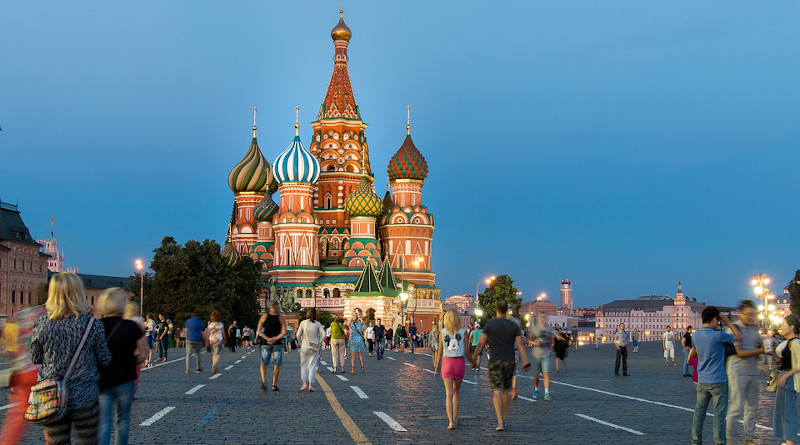Questions To Rouse Russians From Apathy – OpEd
Against the background of the seemingly unending revolutionary uprisings across the Arab world, the nervous reaction of the Kremlin to these events have become particularly noticeable.
At a session in Vladikavkaz, President Dmitry Medvedev said: “The situation, which has evolved in the Near East and in the Arab world – it is most heavy… It is quite probable that there will be difficult events [across the Arab world] that may bring fanatics to power. This is going to signify fires and the further spread of extremism for decades to come. We should look the truth in the eye. They prepared the same scenario for us before and they will most certainly try to do it again now. In any case, this scenario will fail. But everything taking place there is going to render direct influence on our situation, moreover what is being spoken of is a sufficiently lengthy perspective, what is being spoken of is the perspective of decades.”
It’s hard to say who reported to Medvedev and why about how all the protesters were «preparing a scenario» of such events for Russia as well. I think that this is part of the over-reactionary branch of the FSB, who cooked up such a scenario to whisper into the ear of the trusting and scared president. In actuality they are afraid that Russians themselves will come out onto the streets, without any help and prompting from the outside. And the Russians have got their own demands, not African ones.
What questions could arouse Russians?
Well, for example, ones like these. To this day there still doesn’t exist an appropriate transparency in such questions (I sought out the questions in the internet network):
1. Who organized the provocation with the prostitutes and the hidden filming in the event with the «person who looked like former procurator-general Skuratov»? Who passed this film on for unlawful showing on television? Who ordered to conduct an illicit search at the country’s procurator-general’s?
2. Who shattered the parliamentary coalition getting ready to declare the impeachment of president Yeltsin and how?
3. Who stands behind the bombings of the houses in Moscow and what riddle does the Ryazan hexogene hide within itself?
4. How and for what did the second Chechen war begin? What did Russia gain, having replaced colonel Maskhadov with general Kadyrov?
5. Who paid for the first presidential campaign of V.V. Putin?
6. What, by the minute and by the hour, was the Commander-in-Chief of Russia doing in Sochi all those three days while the submariners, at their wits’ end, were clawing at the cold steel of the «Kursk» from within?
7. Who organized the rout of NTV and how?
8. From whom did the first order to arrest M. Khodorkovsky emanate? What served as the ground for this arrest?
9. How did the closest friends of V.V. Putin become billionaires and why?
10. How, why, and when did the first Russo-Georgian war begin?
11. What are the real reasons for the «gas wars» with Ukraine and Belarus?
12. In what is the essence of the preliminary understandings between «president» D.A. Medvedev and «prime-minister» V.V. Putin? How constitutional is the distribution among them of duties with respect to being in charge of foreign policy, the enforcement agencies, the Protection Service?
The most ordinary questions, as we can see, known to everybody for a long time. But society has yet to get answers to them. Because Putin is in power.
There are other questions as well. For example, from the journalist Vladimir Nadein:
«And where are our jurists? They are now preparing to bury Russian justice. This does not concern you? You are ready to continue this? Or is it that you couldn’t care less about Russian law? Then I’m turning not to the correct address. This is a lie, that court decisions can not be discussed. No laws hinder this. Only such discussions give birth to something without which the judicial profession will not be able to acquire prestige – the institution of reputation. Only in the process of professional discussions does a high standard of judicial decisions get created».
It is understandable that there is no independent court in Russia. And this can be seen well not only from the trial against Khodorkovsky and Lebedev. To whom if not Putin and Medvedev, two supposed jurists, to pose such questions?
Here is the opinion of the human rights advocate Elena Sannikova:
«The two-thousands, may they be damned, have given the country a never-before-seen stratification of society, corruption of a level it would have been impossible to imagine 10 years ago, lies and fear, cruelty and cynicism, holier-than-thou pharisaism and moral decay – wherever you look, it is sad and painful to tally up the results of this decade. How did a country that had achieved freedom 20 years ago manage to get this low? … Putin and his team would never have had any chances of taking so much power in their hands and carrying out so many irreversible destructions if a substantial part of the elite intelligentsia had not supported him at the very beginning, if the other had not succumbed to a sense of fear, if the mass information media had not sold their freedom with such ease, if society had not reconciled itself with war in Chechnya. When a person is morally ill, this is his problem and that of his close ones. But in Russia all of society turned out to be ill – it took an oath of fealty to a person calling for «soaking in toilets».
…A society that has wandered into the dark places of moral “toilets” and that endures a dubious power over itself without thinking must get out of these dark places. Get out and ask – loudly and clearly – its leaders to answer all of the questions that have accumulated.

